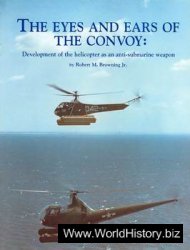If this book had been commissioned in the late eighties as opposed to the late nineties, it would have had a very different shape. Fifteen years ago, historians of the Roman world were in the process of dismantling the hierarchical structure of their subject that had endured since the beginning of scholarly discourse about the Roman Empire. In the late sixties and early seventies, scholars began to move away from work concentrating on the dominant social and political group that had produced the bulk of the surviving literature. They were experimenting with the possibility that groups such as women, slaves, children, peasants, the urban poor, and even soldiers might have a history that was not dictated solely by the interests of people like the younger Pliny. Work by archaeologists, epigraphists and papyrologists had begun to show how it was possible to recover voices from outside the literary tradition. Even within the traditional, philological core of the subject there were signs of change. It was in the late sixties that lively debate erupted over the nature of the Greek literature of the Roman Empire. Characters like Galen, Aelius Aristides, and Pausanias became worthy subjects of research as excavation and epigraphic discovery restored the cities in which they had lived and worked. In the late seventies biographical approaches to Roman emperors encountered a massive challenge in Fergus Millar’s Emperor in the Roman World, which proposed, for the first time, a model for the interaction between emperor and subject that transcended the personalities of individual rulers (Millar 1977). At roughly the same time, two other developments were changing the scope of the subject. One was the growth of interest in ‘‘Late Antiquity,’’ which fueled interest in broad areas of social and intellectual history. The other was Moses Finley’s work on the economy of the ancient world. His work became the focal point of a debate between archaeologists who studied the evidence for trade and historians who questioned whether any amount of empirical data could overthrow an approach based on a theoretical model.
Recent approaches to the Roman Empire, drawing as they do upon work done in other areas, continue a long tradition of cross fertilization and methodological
Innovation. The reason for this is that much of the most important work in the past century has been done by scholars who have been able to stand outside the standard curricula of the institutions where they have been employed. They have had to do so because interest in the period after Augustus, or, at least, after the death of Trajan, rarely corresponded to any course of study routinely offered to undergraduates. Lacking literature that was deemed ‘‘great’’ after the death of Tacitus, the study of Rome in later periods nevertheless attracted attention because it raised profound historical questions: how did the empire sustain itself, why did it fail, and how did it deal with the diverse peoples that had come under its rule?




 World History
World History









